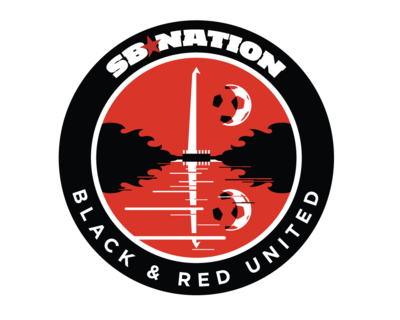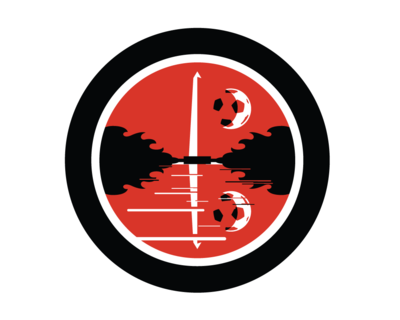After being held to a humbling shutout at home, D.C. United will take on a New England Revolution team that has been very tough to beat this season. Sure, the Revs have just one win - and it came against the worst team in MLS, the New York Red Bulls - but they also have just one loss in their seven outings. New England had the better of play when these two sides met last month, so look for United to emphasize some different points going forward while still focusing on the defensive ideas that, in recent years, they've used to mostly contain the Revs.
Let's get to five specific things that the Black-and-Red need to take care of this evening:
Prevent quick transition play
When you look at the Revolution lineup, you'll see a team that seems set up to keep the ball and impose their will with possession. They do like to string passes together, but how they go about it is unusual. Jay Heaps has set his Revs up to pose a challenge that is more or less unique in MLS: They want to move through the middle third as quickly as possible, and then once they get into the attacking third - provided they can't just steam forward and go to goal - they'll try to knock the ball around. They're in a hurry to get up field, despite not really playing a bunch of long balls to some lumbering target man.
More than anything else, slowing them down and making them work their way through that middle third is the best way to unsettle the Revs. Part of that means staying dialed in even when the ball is 70 or 80 yards from goal. However, the real work involves preventing the defensive midfielders - particularly Scott Caldwell - from facing upfield under no pressure. They'll get their touches, but if Caldwell is having to play sideways or backward rather than pushing play forward to Lee Nguyen, United is going to take the wind out of New England's sails.
Spread the ball to the flanks early and often
There are three benefits to central midfielders Marcelo Sarvas and Nick DeLeon moving the ball into wide spots:
- The Revs are a bit vulnerable on the wings. Likely starting right back London Woodberry is a decent player, but there's a reason he's not first choice. On the left, Chris Tierney struggles to keep up with fast players. On top of being a good way to create chances, this also forces the fullbacks to stay home more often. Given how New England relies on Tierney going forward, that's huge.
- The Revolution will play a 4231, which means United will be lining up 2v3 in central midfield. If the ball gets bogged down in the middle, the Revs will eventually be able to make that numerical advantage count. If the ball is shuttled wide in an efficient manner, that won't be a problem.
- New England will look for chances to break forward in numbers, but it's harder to effectively counter-attack when you're having to win the ball on the wings than it is in the middle. Let's say United loses the ball going up the right wing. The Revs are likely to either a) pass into the middle, where United should have two positionally conservative midfielders, b) pump the ball long, towards an aerial mismatch with Steve Birnbaum and Bobby Boswell, or c) push the ball up the wing, where the sideline functions as an extra defender of sorts.
Don't just shoot because ¯\_(ツ)_/¯
United has taken plenty of shots this season, but their shot selection has been a source of a lot of justified complaints here and elsewhere. Far, far too many attacks have ended because of things like a lack of further ideas, impatience, selfishness, lack of trust, or an unwillingness to take the risk that is connecting another pass or attempting to dribble past someone.
The Revs are probably just fine with letting up 15-20 shots if 8 or 9 are the kind of bad shot United has been selecting too often this year (i.e. from long range and either into a crowd or rushed). In those spots, the Black-and-Red need to have the courage to get in closer. That means connecting a pass in traffic, or trying to dribble past someone. Those carry risk, of course, but the payoff is more promising than giving up on an attack by just shooting when the shot is clearly not on.
This isn't just about any one player. While Fabian Espindola has taken more of these shots than anyone else, he's far from the only guilty party. United needs more intelligent movement off the ball in these moments, so the person sorting out whether to shoot or not has an enticing option to do something else. The front six also needs to show more trust in one another. There are times where being selfish in the attacking third is right, but United has too often missed the right balance between when to do that and when to add another pass to the move.
Don't concede a first minute goal
For the obvious cause of winning soccer games, and for the sanity of everyone invested in this club. It can be tough to get your first decision, or first save, or first touch of a game correct, but it shouldn't be so difficult so regularly.
Seriously, I'm a Capitals fan who also just lost Prince on his birthday. Have mercy.
Prevent left-to-right service
No one in MLS takes a higher percentage of their shots from the right than the Revs. It's not hard to see why: They rely heavily on Chris Tierney's crossing from left back, and with Teal Bunbury often having a size advantage at the back post it's a favorable place to aim. On top of that, the fact that they involve Tierney so much forces opposing teams to cheat to that side of the field, leaving open space on the other side. Remember Kelyn Rowe wasting a stoppage time chance to score a winner up in Foxboro? That was a left-to-right move based around that principle.
There are two parts to this idea: First, when United tries to pin the Revs in along their left, their own left-sided players - most likely Taylor Kemp and Lamar Neagle, though Patrick Nyarko has spent large spells in two straight games on that side - have to be vigilant about where New England's right-sided players are. If the cross or pass comes that way, they're going to have to win an individual battle. The best way to do that is to think ahead and take a superior angle to the ball, but on crosses Kemp in particular needs to be ready to initiate contact before the ball is served. If Bunbury (or possibly even Juan Agudelo, if he plays) gets a couple of steps in, Kemp is going to lose the aerial battle. This is a situation where winning before there's even a battle is the best way to handle the situation.






